-
 Bitcoin
Bitcoin $102,662.5363
4.85% -
 Ethereum
Ethereum $2,193.0670
19.81% -
 Tether USDt
Tether USDt $0.9999
-0.02% -
 XRP
XRP $2.3038
7.50% -
 BNB
BNB $625.3061
3.85% -
 Solana
Solana $162.5747
9.35% -
 USDC
USDC $1.0000
-0.02% -
 Dogecoin
Dogecoin $0.1948
11.09% -
 Cardano
Cardano $0.7630
11.78% -
 TRON
TRON $0.2574
3.22% -
 Sui
Sui $4.0011
17.05% -
 Chainlink
Chainlink $15.7755
11.92% -
 Avalanche
Avalanche $22.1531
11.42% -
 Stellar
Stellar $0.2965
12.70% -
 Shiba Inu
Shiba Inu $0.0...01431
10.58% -
 Bitcoin Cash
Bitcoin Cash $418.8427
3.36% -
 Hedera
Hedera $0.1947
9.85% -
 UNUS SED LEO
UNUS SED LEO $8.8625
0.49% -
 Toncoin
Toncoin $3.1835
5.09% -
 Hyperliquid
Hyperliquid $23.2143
10.04% -
 Litecoin
Litecoin $94.7248
4.08% -
 Polkadot
Polkadot $4.4824
10.46% -
 Monero
Monero $301.2717
6.79% -
 Dai
Dai $1.0001
-0.02% -
 Bitget Token
Bitget Token $4.4883
5.14% -
 Pi
Pi $0.6881
13.78% -
 Ethena USDe
Ethena USDe $1.0000
-0.06% -
 Pepe
Pepe $0.0...01096
30.81% -
 Uniswap
Uniswap $6.0905
23.37% -
 Bittensor
Bittensor $424.6065
12.59%
Where is Compound(COMP) currency traded?
COMP, the native token of the decentralized lending protocol Compound, is traded on centralized exchanges such as Binance and Coinbase as well as decentralized exchanges like Uniswap and SushiSwap.
Dec 08, 2024 at 11:08 pm
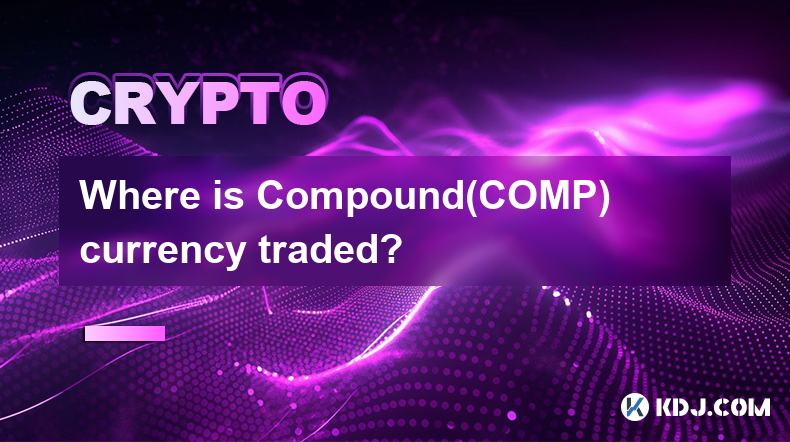
Where is Compound (COMP) Currency Traded?
Compound (COMP) is a decentralized lending protocol that facilitates cryptocurrency lending and borrowing. It allows users to lend their assets and earn interest or borrow assets and pay interest. COMP is the native token of the Compound protocol and is used for governance and rewards distribution.
Centralized Exchanges:
- Binance: Binance is the largest cryptocurrency exchange in the world and offers trading in COMP against USDT, BUSD, and BTC. It has high liquidity and supports a wide range of order types.
- Coinbase: Coinbase is a reputable and user-friendly exchange that offers COMP trading against USD, BTC, and ETH. It has a simple interface and supports both spot and margin trading.
- Kraken: Kraken is a long-standing exchange known for its security and trading depth. It offers COMP trading against USD, EUR, BTC, and ETH. Kraken also supports advanced trading tools and features.
- Huobi: Huobi is a leading global exchange that offers COMP trading against USDT, BTC, and ETH. It has a high trading volume and supports multiple order types and trading strategies.
- OKX: OKX is another popular exchange that offers COMP trading against USDT, BTC, and ETH. It has a user-friendly interface and supports various trading tools and features.
Decentralized Exchanges:
- Uniswap: Uniswap is a decentralized automated market maker (AMM) that allows users to trade COMP directly with other users. It offers a highly decentralized and permissionless trading experience.
- SushiSwap: SushiSwap is another popular AMM that offers COMP trading against a range of cryptocurrencies. It has a diverse community and supports yield farming and other decentralized finance (DeFi) services.
- Curve: Curve is a specialized AMM optimized for stablecoin trading. It offers low slippage and efficient swaps for COMP and other stablecoins.
Wallets:
COMP can also be stored and traded within cryptocurrency wallets that support the token. These wallets include:
- MetaMask: MetaMask is a popular crypto wallet used to interact with decentralized applications (dApps) and store ERC-20 tokens, including COMP.
- Trust Wallet: Trust Wallet is a mobile crypto wallet that supports a wide range of cryptocurrencies, including COMP. It offers a simple and user-friendly interface.
- Ledger: Ledger is a hardware wallet that provides secure storage for cryptocurrencies, including COMP. It offers advanced security features and protection against hacking attempts.
Disclaimer:info@kdj.com
The information provided is not trading advice. kdj.com does not assume any responsibility for any investments made based on the information provided in this article. Cryptocurrencies are highly volatile and it is highly recommended that you invest with caution after thorough research!
If you believe that the content used on this website infringes your copyright, please contact us immediately (info@kdj.com) and we will delete it promptly.
- Coinbase's Q1 2025 Earnings Report Disappoints Bullish Expectations in Several Key Areas
- 2025-05-09 09:05:13
- Obol Collective Launches the OBOL Token, Powering the Future of Decentralized Ethereum Staking
- 2025-05-09 09:05:13
- Sun Life Financial Inc. (TSX: SLF) (NYSE: SLF) Declares a Dividend of $0.88 Per Share
- 2025-05-09 09:00:12
- Sun Life Announces Intended Renewal of Normal Course Issuer Bid
- 2025-05-09 09:00:12
- Coinbase (COIN) Q1 CY2025 Highlights: Revenue Falls Short of Expectations, but Sales Rose 24.2% YoY to $2.03B
- 2025-05-09 08:55:12
- BlockDAG (BDAG) Clears Its Third Audit, Prepping for Launch
- 2025-05-09 08:55:12
Related knowledge
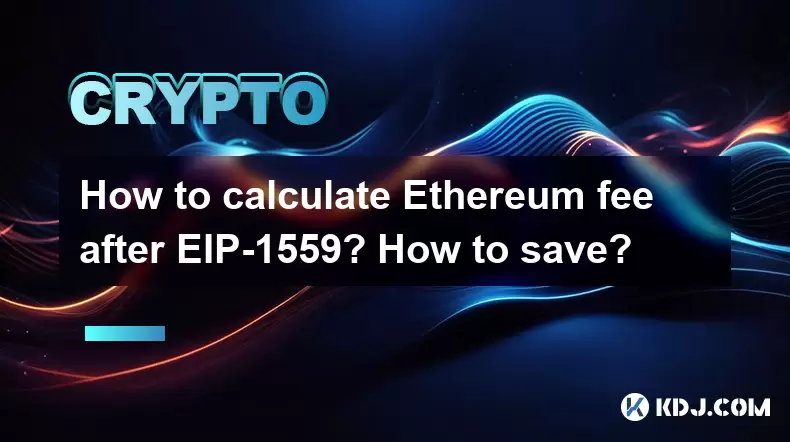
How to calculate Ethereum fee after EIP-1559? How to save?
May 09,2025 at 08:01am
The introduction of EIP-1559 in August 2021 brought significant changes to the Ethereum network's fee structure, revolutionizing how users interact with transaction costs. This article will delve into the specifics of how to calculate Ethereum fees post-EIP-1559 and offer strategies to save on these fees. Understanding EIP-1559 and its ComponentsEIP-155...
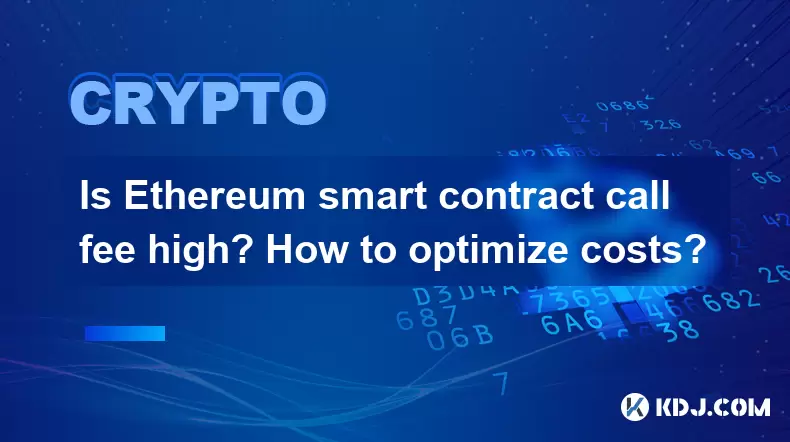
Is Ethereum smart contract call fee high? How to optimize costs?
May 08,2025 at 09:35am
Is Ethereum Smart Contract Call Fee High? How to Optimize Costs? The world of Ethereum smart contracts has revolutionized the way we think about decentralized applications and blockchain technology. However, one of the most frequently discussed topics within this realm is the cost associated with executing smart contract calls. In this article, we will ...
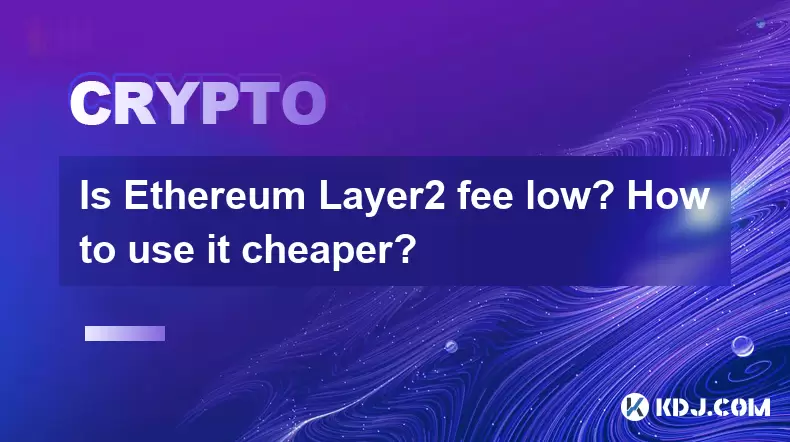
Is Ethereum Layer2 fee low? How to use it cheaper?
May 08,2025 at 03:56am
The question of whether Ethereum Layer 2 solutions offer lower fees and how to use them more economically is a topic of great interest within the cryptocurrency community. Ethereum's Layer 2 solutions have been developed to address the high transaction fees and scalability issues associated with the main Ethereum network. In this article, we will delve ...

How to calculate Ethereum network fee? How to reduce transaction costs?
May 08,2025 at 02:15am
Understanding and managing Ethereum network fees is crucial for anyone involved in transactions on the Ethereum blockchain. The network fee, also known as gas fee, is the amount of Ether (ETH) required to successfully conduct a transaction or execute a smart contract on the Ethereum network. Calculating these fees and finding ways to reduce them can sig...
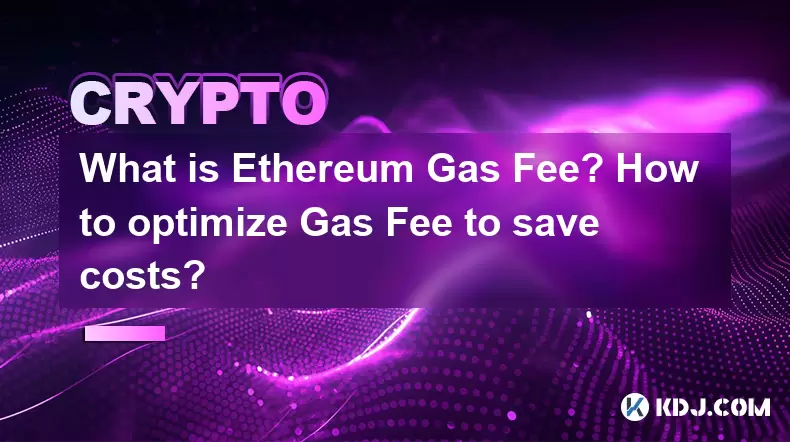
What is Ethereum Gas Fee? How to optimize Gas Fee to save costs?
May 08,2025 at 03:43am
Ethereum gas fees are a crucial aspect of interacting with the Ethereum blockchain. Understanding and optimizing these fees can significantly impact the cost-effectiveness of transactions and smart contract interactions. In this article, we will delve into what Ethereum gas fees are, how they are calculated, and provide detailed strategies for optimizin...
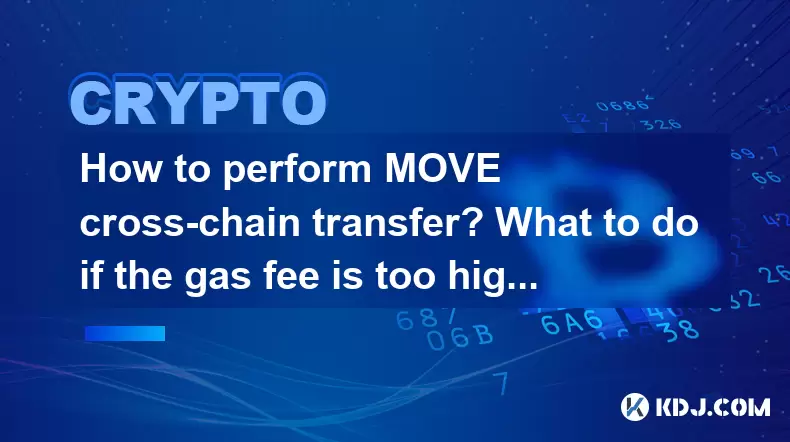
How to perform MOVE cross-chain transfer? What to do if the gas fee is too high?
May 07,2025 at 08:03pm
Introduction to MOVE Cross-Chain TransferCross-chain transfers have become an essential part of the cryptocurrency ecosystem, allowing users to move assets between different blockchain networks. One of the popular protocols for achieving this is the MOVE cross-chain transfer. This article will guide you through the process of performing a MOVE cross-cha...

How to calculate Ethereum fee after EIP-1559? How to save?
May 09,2025 at 08:01am
The introduction of EIP-1559 in August 2021 brought significant changes to the Ethereum network's fee structure, revolutionizing how users interact with transaction costs. This article will delve into the specifics of how to calculate Ethereum fees post-EIP-1559 and offer strategies to save on these fees. Understanding EIP-1559 and its ComponentsEIP-155...

Is Ethereum smart contract call fee high? How to optimize costs?
May 08,2025 at 09:35am
Is Ethereum Smart Contract Call Fee High? How to Optimize Costs? The world of Ethereum smart contracts has revolutionized the way we think about decentralized applications and blockchain technology. However, one of the most frequently discussed topics within this realm is the cost associated with executing smart contract calls. In this article, we will ...

Is Ethereum Layer2 fee low? How to use it cheaper?
May 08,2025 at 03:56am
The question of whether Ethereum Layer 2 solutions offer lower fees and how to use them more economically is a topic of great interest within the cryptocurrency community. Ethereum's Layer 2 solutions have been developed to address the high transaction fees and scalability issues associated with the main Ethereum network. In this article, we will delve ...

How to calculate Ethereum network fee? How to reduce transaction costs?
May 08,2025 at 02:15am
Understanding and managing Ethereum network fees is crucial for anyone involved in transactions on the Ethereum blockchain. The network fee, also known as gas fee, is the amount of Ether (ETH) required to successfully conduct a transaction or execute a smart contract on the Ethereum network. Calculating these fees and finding ways to reduce them can sig...

What is Ethereum Gas Fee? How to optimize Gas Fee to save costs?
May 08,2025 at 03:43am
Ethereum gas fees are a crucial aspect of interacting with the Ethereum blockchain. Understanding and optimizing these fees can significantly impact the cost-effectiveness of transactions and smart contract interactions. In this article, we will delve into what Ethereum gas fees are, how they are calculated, and provide detailed strategies for optimizin...

How to perform MOVE cross-chain transfer? What to do if the gas fee is too high?
May 07,2025 at 08:03pm
Introduction to MOVE Cross-Chain TransferCross-chain transfers have become an essential part of the cryptocurrency ecosystem, allowing users to move assets between different blockchain networks. One of the popular protocols for achieving this is the MOVE cross-chain transfer. This article will guide you through the process of performing a MOVE cross-cha...
See all articles






















































































